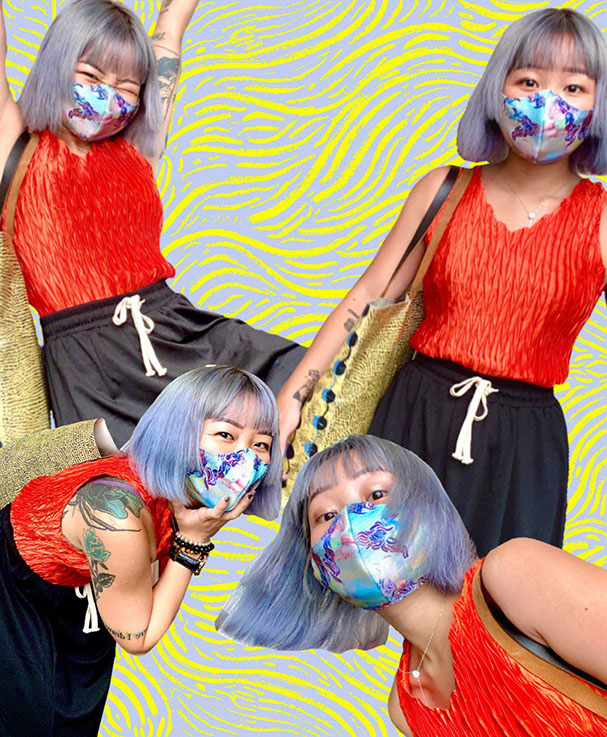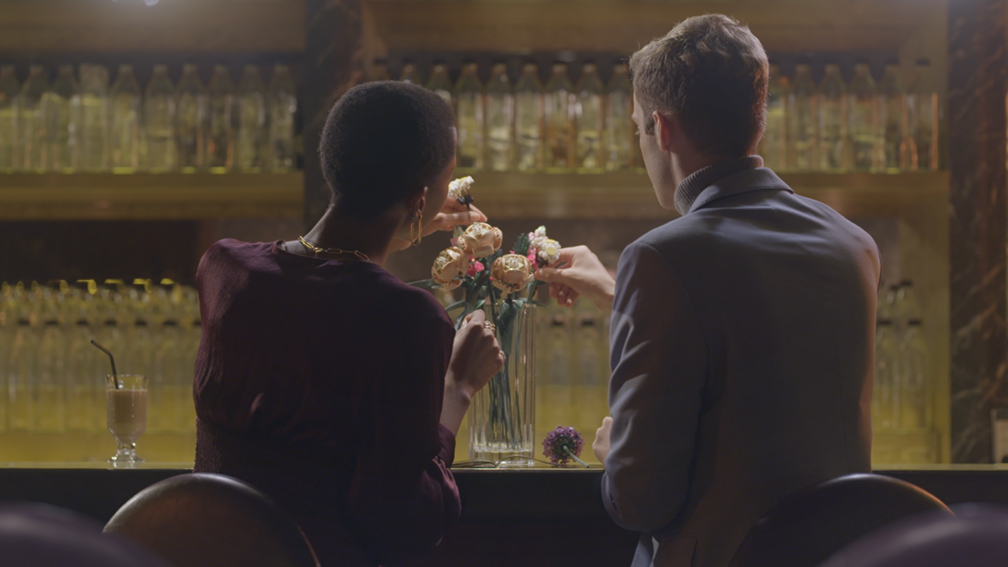DIRECTOR’S PROFILE: Directors Think Tank Director Clare Chong

Singapore-born and Singapore based Clare Chong is a director at Directors Think Tank, a leading production company with offices in Singapore, Indonesia and Malaysia. Campaign Brief Asia put 15 questions to Chong to find out more about her and her approach to directing
1. What’s your favorite part of the job?
I absolutely love to sit and look through different commercials, films, photographs, and snippets of readings as part of my research process whenever I receive a new project to work on. I find putting together these references the most exciting part, because I start with one idea at the beginning and it is through the time I take to look through references that the idea starts to evolve and becomes bigger and more exciting.
I do also love to be on set, and my favourite part of being on set is being my own DJ. I always, always, always come up with a playlist when I shoot. So I will plug in my speakers and play different music to set the tone on set for the cast and crew.
2. What is your most productive time of day and why?
My morning ritual is to wake up, have breakfast and coffee, practice the piano, and then I sit down and work for a good 4-5 hours till I get hungry again. This is usually at 9am – 2pm, and then after that my focus slows down a little bit.
3. If you didn’t have this job, what would you be doing instead?
I have thought of being an anthropologist as that was one of the subjects I studied prior taking my degree in film. However, my ex-principal said that you can always have a Plan A and a Plan B, but once you have a plan B, your plan A will never succeed. Filmmaking was my plan A, so I went all out with that.
4. How early did you know this would be your path?
I only seriously considered this as a full time career when I was 20 or so. Prior to this, I was a music major and sang opera so I thought music was going to be my path.
5. Can you name some recent jobs?
I have recently worked with some really cool clients such as Sothys, LEGO, and Cadbury!
6. Do you put on a different hat when shooting for a specific genre?
It really depends on what is required, so definitely I have to conduct myself a different way when I shoot for a different genre, different client, different subject nature.
When I work with kids, the set has to be light and happy, easy going. With action films, serious because safety is the priority. With dance and movement, I use music to direct, and with narrative, I factor a lot of time for improvisation on set as well as for discussion with actors and actresses. I almost never stick with any lines when there is dialogue on screen.
7. Have you been continuing to shoot during the COVID crisis? Can you describe that experience?
Yes I have! I even did some collaborations via zoom, where I got some of my friends to respond to music and I pieced it together into a film. I also made mini shorts featuring my sister, and found different ways to collaborate with other artists and filmmakers. I thought that it was quite a blessing in disguise, because I was finding out new methods of collaboration, something I would never have done without the ongoing pandemic.
8. Do you have a favorite piece of kit?
I have a production bag, and it usually holds my spike tape, scissors, pens and markers, alcohol swabs and a leatherman. I used to do a lot more assistant directing so these were important things I carried around. Now that I’m focusing more on directing, I still carry these but more out of habit.
9. Are you often asked to do more than direct? If so, what are you asked to do?
Aside from directing, I still do some assistant directing as this allows me to work and collaborate with different directors. Out of film, I teach yoga and also paint on the side!
10. What are three pieces of technology you can’t live without?
My MacBook, iPad, 2x iPhones, AirPods – I’m an apple fan, obviously. I also need my hairdryer, and hmmm…
11. This is a high-stress job. What do you do to de-stress from it all?
Work comes first, but it is also important to say that you need time for yourself. You have to create that balance for yourself. For me, I work out at the gym and i’m trying to get more into calisthenics! I also do lots of yoga, pole dancing, painting, and playing the piano. I recently picked up printmaking, so I attend night classes to destress. Other than that, I try to do one hike a week.
12. How do you manage producers’ expectations with the reality of what can really be done?
It’s really about talking, talking, talking. Just having an open conversation, and also you must love your producer and be kind to them. I think once you have a relationship where director and producer trust and are good friends with each other, it’s very easy to discuss anything and everything.
13. How do you manage your time? Do you manage expectations or try everything they ask of you?.
I usually sit down every Sunday to plan out the next week ahead. So I create weekly goals, break them down into daily goals, and then I plan out what I am doing every hour of the day. And within those hours I incorporate time for me to destress – ie. Netflix and chill, or work out, or maybe even just to cook.
Most of the time my plans change, but at least I have a working schedule so I can shuffle things around. There will always be last minute meetings, late nights etc. However I still have the freedom to adjust the next few days so make back lost time.
14. When someone who is starting out asks what they should learn, what do you recommend?
I feel the most important thing every filmmaker needs to do is to learn how to edit. Edit everything, and you will learn from there. Working as an assistant director trained me to talk to people, to command a set at a young age, and to stand my ground. It also trained me to direct, plan schedules (I absolutely love doing call sheets!) so I would say you should learn how to AD too.
The other thing I feel is super important is to learn how to socialise, perhaps a glass or two of wine / take your preferred vices. People need to learn how to relax, to chill out sometimes and just talk about ideas, spend time with friends, and go into another state of mind. Who knows where these adventures will take you?
15. How do you take criticism? Do you find yourself defensive or accepting of others’ ideas (good and bad)?
Accepting criticism takes time to learn. I’m still learning for sure. Sometimes I can still be defensive, but nowadays I really try to manage my emotions better. Yoga helped me a lot in this, especially pranayama practice (breathing techniques). Maybe one day I can reach a state where criticisms no longer affect me, but I think I have ways to go for that.

